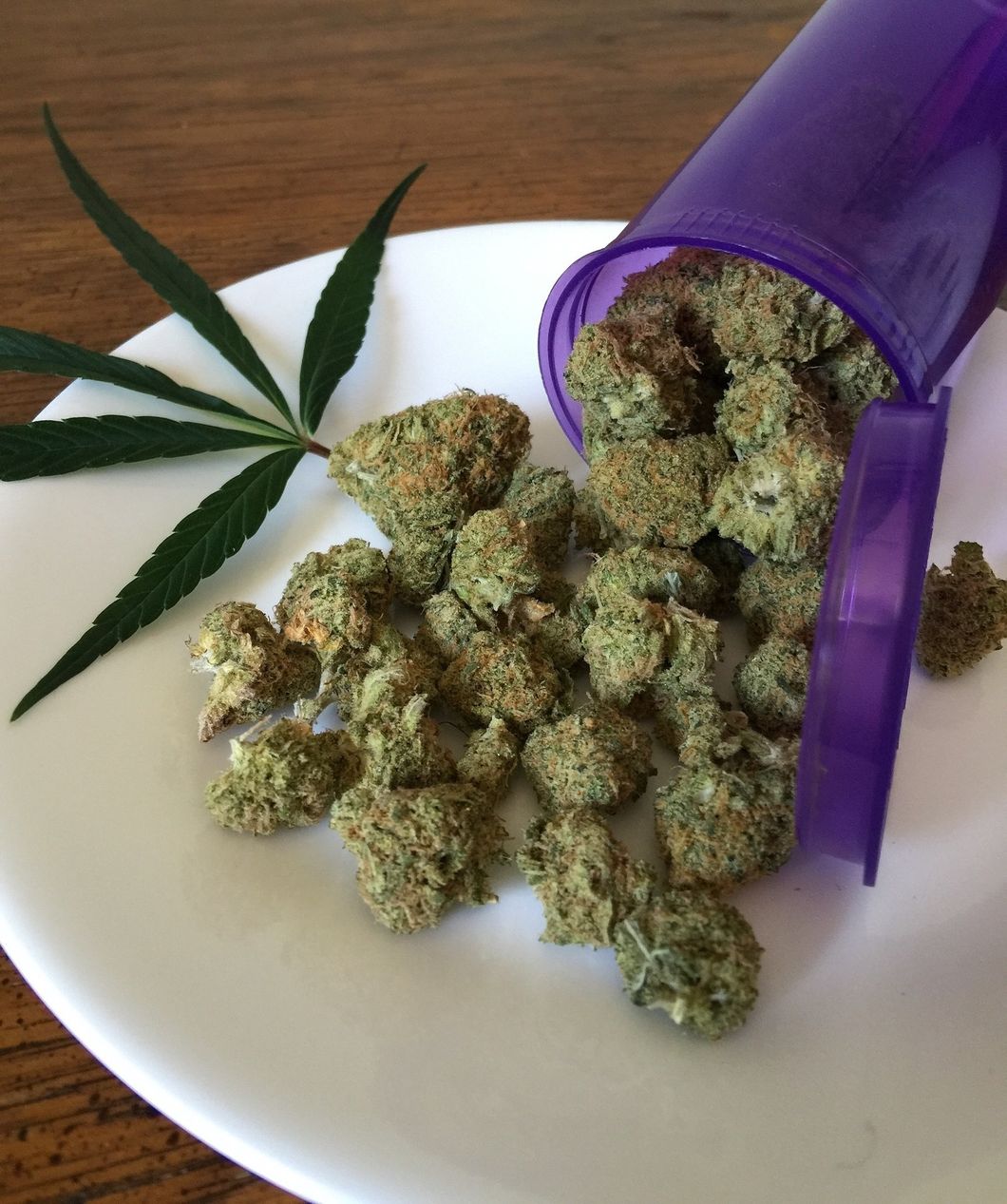The Northeastern United States is in the midst of a major Opioids Crisis. More and more people are becoming addicted to hard and illegal substances like heroin or abusing prescription pain pills such as oxycodone, Vicodin, codeine, morphine or fentanyl. As this epidemic only worsens, no one seems to have any clue as to how to fix this. That's not surprising. Donald Trump isn't the type of captain to steer a ship out of a storm and Republican leadership has long confused the concept of healthcare with pyramid schemes. But a tool that can help alleviate some of the opioid rises has been sitting right in front of our faces, admittedly one that might make Jeff Sessions curl into a ball and hum "Dixie" for a few hours.
Yes, folks, I'm talking about legalized marijuana. You see, before the Civil War, the cannabis plant was a common ingredient in medicine because it is a non-addictive pain reliever. Keyword there being "non-addictive". After the Mexican-American War white Americans moving west into former Mexican lands were alarmed by… well, the Mexicans. In an effort to muster anti-Mexican sentiment, nationalists stirred horror stories about an alarming Mexican drug called marijuana. Americans, being the all so rational people we are, quickly bought into that fear, never connecting the Mexican marijuana with the common medical ingredient cannabis.
Fast forward to the 20th Century when newspaper magnate and politician William Randolph Hearst feared the rise of the hemp industry interfering with his business interests. He had and a pamphlet written and distrusted to both members of Congress and the public. It claimed that marijuana made white women want to sleep with black men and the country went nuts. Perhaps this has something to do with the fact an overwhelming majority of prisoners incarcerated on marijuana charges are minorities. Anyway, what followed was a period of hysteria known as "Refer Madness", eventually leading to the Marijuana Tax Act of 1937 which effectively banned the drug.
Today, we're a bit smarter. We know marijuana is less addictive than caffeine and how it's basically humanly impossible to consume enough weed to kill you so it's less dangerous than Advil or cigarettes, let alone opium-derived drugs. A few east coast states have already legalized both medical and recreational marijuana, with our own New York having yet to permit the latter just yet. THC in a concentrated pill form is available to doctors and hospitals for patients who wish to avoid opioids altogether. Making these pills more available to the public would give many a safer alternative to ease their pain and avoid the risk of becoming dependent on harsher pharmaceuticals. In the long run, more access to cannabis-based medication will mean less access to opium-based products.
Admittedly, this alone will not fix the Opioids Crisis but it will certainly make a difference by providing safer alternatives while also working to create a softer opinion towards drugs throughout the country. The United States, her government and her people, must stop viewing drug use as a criminal issue and start recognizing that it is, in fact, a medical issue. Nobody wants to be addicted. Addiction is a disease and, although it is classified as a schedule one drug, marijuana is a remedy to, not a cause of, that disease. Its reputation, as bad as it is, was born out of racism, ignorance and the conqueror's fear of his new unknown. Its banning was a political casualty in a real-life game of Monopoly in which the powerful players would stop at nothing to win.
I think we're smarter now. I think we know better and accept a more positive reinforcement style policy. We're there now, aren't we? We need to be because the Opioids Crisis isn't going anywhere unless we actually act. This time, the old ideas just won't cut it.
















